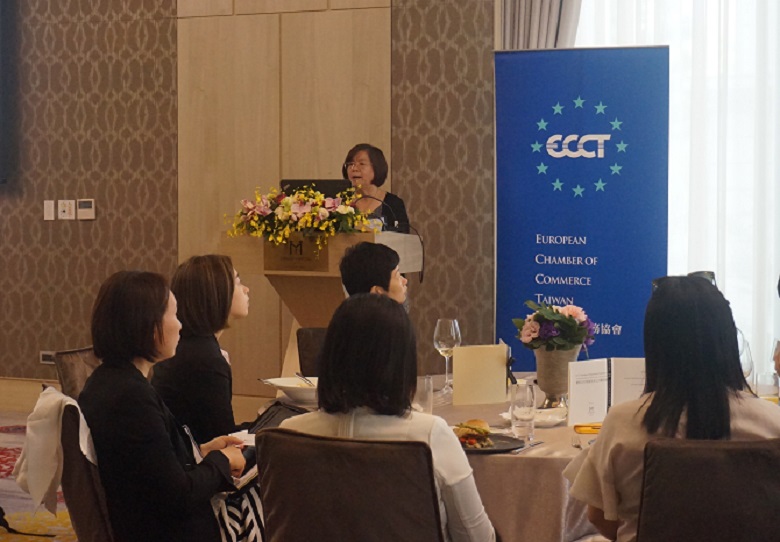NHI payment system reform in Taiwan

The ECCT's Healthcare Enhancement committee hosted a lunch on the topic: "NHI payment system reform in Taiwan - Overview and prospects" with guest speaker Dr Lee Yue-chune, Professor of the Institute of Health and Welfare Policy at National Yang-Ming University.
The speaker noted that there are two levels of reform of the payment system: macroeconomic regulation of overall medical expenses and micro payment system reform, aimed at improving efficiency and effectiveness and payment fairness.
The healthcare system has undergone several levels of reform in recent years but the process has not yet been completed.
While the speaker agreed that the NHIA’s budget is probably not enough, she emphasised that there are ways to get better value out of the current budget. In particular, there is too much unnecessary spending on areas where the benefits are not certain. This may come in the form of unnecessarily prescribed medicines or unnecessary tests. At the same time, too little of the budget previously was allocated to prevention.
According to Dr Lee, only 4.5% of patients in Taiwan suffering from catastrophic diseases consume 30% of the budget. Improvements have already been made in recent years to reduce waste. For example, cloud information and management has reduced duplication of dispensed medicines. If more such savings can be realised, there will be more money left over for new drugs.
Taiwan’s healthcare system compares favourably to OECD countries based on a number of statistics. Overall, the system remains affordable and effective in terms of improving health outcomes for the general population, especially for children and the elderly. Nevertheless, there is still duplication and a lack of coordinated integration and standardization in the system. Moreover, the coverage rate needs to be improved in certain areas while the management of chronic disease diseases needs to be strengthened.
In addition, Taiwan’s healthcare system is not completely comprehensive. In recent years, people have been spending a larger portion of their income on healthcare-related expenses, which, according to Lee, is a worrying trend. There are also some unfair and perverse aspects of the system. For example, outpatient consultation fees are relatively high, which reduces the willingness of physicians to engage in surgery, critically ill, high-risk medical care and inpatient services. Moreover, patients pay the same consultation fees and physicians receive the same fees regardless of the time spent with each patient. This creates the incentive to speed up consultations, which can affect the quality of diagnoses and outcomes.
On a question during the Q&A session as to what can be done to increase spending on drugs, Dr Lee said that companies would do well to provide more evidence of the effectiveness of their products in terms of patient outcomes.


